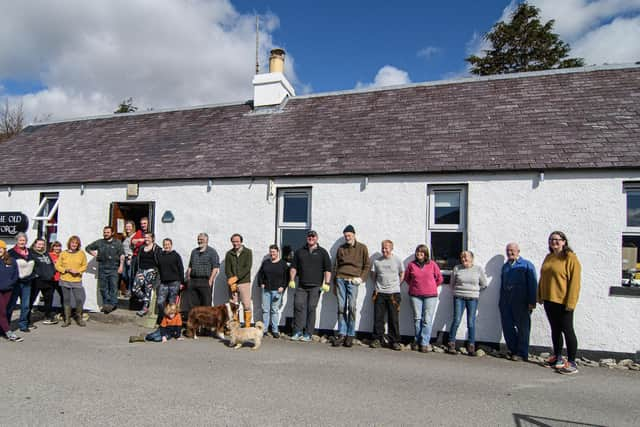Knoydart community rejects UK Government plans to install 4G network as 'totally disproportionate'
Residents in one of the UK’s most remote areas have said a proposal to install a network of 4G masts in their area is “totally disproportionate”.
The UK Government and the country’s four largest mobile network providers are splitting the cost of a £1 billion project, known as the Shared Rural Network, to improve mobile coverage across the UK. The project aims to increase Scotland’s geographical mobile coverage to 90 per cent by 2025.
Advertisement
Hide AdAdvertisement
Hide AdAs part of this, a swathe of potential 4G masts sites have been identified across the rural Knoydart peninsula in Lochaber, which has a total population of around 130 people.


The majority of the peninsula has been community-owned since 1999, and is managed on behalf of locals by the Knoydart Foundation. Stephanie Harris, 33, a local resident and business manager at the community-owned pub The Old Forge, said there was no justification for the proposed network.
"The plan for these 4G masts are totally disproportionate in terms of this area,” she said. "We already have a phone mast here that has improved coverage, we don’t need more.”
A 4G mast recently went live on the Knoydart peninsula, installed as part of the S4GI programme. The new mast provides EE mobile coverage across the majority of the peninsula where signal was once not available, and also improves the emergency services coverage.
Ms Harris said the community were visited by consultants Gateley/Hamer earlier this year who surveyed the area. She said the community was expecting an update from them on proposals “imminently”.
Despite no official consultation, locals learned 11 locations were being considered in the area, with at least three sites on community-owned land. With the exception of one site close to the main village of Inverie, the other sites are proposed in isolated, uninhabited glens.
With no supporting infrastructure nearby, Ms Harris said there had been suggestions the masts would have to be constructed and then maintained by use of helicopters, and potentially fuelled by generators.
"I am concerned about what all this will do for the environment,” Ms Harris said. The Knoydart Foundation did a survey on the 4G mast proposals and found all 104 responses to the questionnaire unanimously rejected the plans.
Advertisement
Hide AdAdvertisement
Hide Ad"We’ve never had such a strong outright no response from the community,” Ms Harris said. "I know it doesn’t look big down on paper, but it’s the whole community standing against this.”
She added: “We have done some research on the companies we are dealing with and when you see that they are experienced in compulsory purchase holders, it does make you concerned they could really push this.”
A Department for Science, Innovation and Technology spokesperson said: “Reliable connectivity is fundamental to making sure all the UK can access the growth and opportunity offered by a digital economy. Delivering this, the Shared Rural Network (SRN) programme tackles the digital divide across the UK, including the most remote parts of Scotland, by providing high-speed 4G connections for the first time, supporting the economy while also opening up access to key services like 999 calls.
“We will work closely with supportive local communities and planning authorities to ensure new masts go through the proper planning process, with due consideration to the areas of natural beauty.”
Comments
Want to join the conversation? Please or to comment on this article.